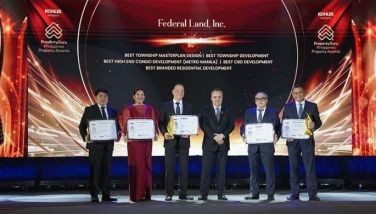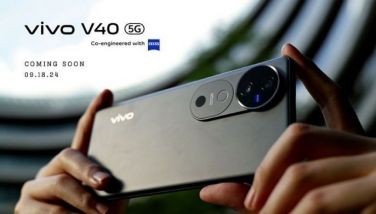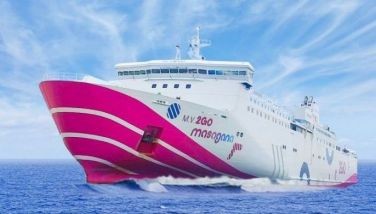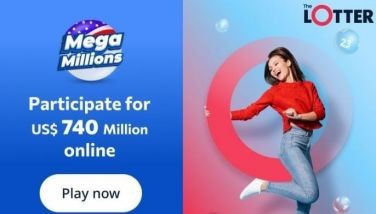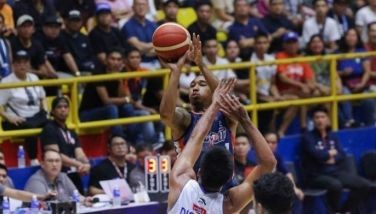Chopsticks

TAIPEI – When Chung-kwang Tien was a kid, his father would take a chopstick and break it in front of the boy. Then the father would gather several chopsticks together and show how difficult it was to break the bunch all at the same time.
It was the elder Tien’s way of illustrating strength in togetherness.
Today the boy is Taiwan’s deputy foreign minister, and he uses his father’s story to stress the importance of countries with shared values and interests banding together, forming a “solidarity of freedom, democracy and respect for human rights.”
In the past months, China has ramped up military drills around Taiwan, which Beijing considers a renegade province, amid the perception that new President William Lai is a separatist who would press independence from the mainland.
Apart from the drills, however, China has been tightening the screws on Taiwan through economic coercion, imposing trade restrictions on Taiwanese exports and preventing Chinese citizens from visiting the self-ruled island for leisure.
The moves have prompted Taipei to cut its tourist arrival projections for 2024 from 12 million to 10 million, and have resulted in a significant drop in Taiwanese exports, China being the island’s biggest market.
Tien seems to take comfort in the fact that the Taiwanese aren’t the only ones who are feeling Chinese economic coercion and hybrid warfare.
Meeting with visiting foreign journalists at the Ministry of Foreign Affairs in this capital city, Tien recalled that Beijing was riled when Scott Morrison, at the time the prime minister of Australia, had raised the possibility in April 2020 that the COVID virus might have originated from China.
Beijing then stopped ordering a major Australian export, wine. Taiwan stepped in and bought Australian wine and lobsters. The Taiwanese, Tien said, called it “freedom red wine and freedom lobsters.”
“We have to help each other,” he said.
As he raised his glass of Aussie red wine to welcome the foreign journalists, Tien quipped that with the wine and lobster, “my cholesterol goes up, so we call it my freedom cholesterol.”
* * *
Australia learned its lessons from China’s economic coercion and began to diversify its markets and supply chains. The task is more difficult for Taiwan, whose biggest trading partner has long been the Chinese mainland.
In 2020, Taiwanese exports to China hit the highest ever, accounting for up to 44 percent of the total, according to Da-nien Liu, director of the think tank Chung-Hua Institution for Economic Research (CIER). Last year, China’s share of Taiwanese exports remained the largest, but with a significant drop at just 35 percent, Liu said.
Diversification and reducing economic dependence on China, however, can be “very difficult to do quickly,” according to both Liu and CIER research fellow Ming-min Yang. “We still have a long way to go.”
Yang noted that Taiwanese gross domestic product growth slowed to just 1.3 percent last year, largely because of Beijing’s restrictions on imports from Taiwan, aggravated by the continuing economic slowdown in China. While exports to other countries went up, it still wasn’t enough to compensate for the flat exports to China, he said.
For this year, the GDP growth forecast for Taiwan is at least 3.5 percent, Liu and Yang said.
* * *
Taiwan has started looking south (and west) for economic and other “mutually beneficial” partnerships. There are 18 countries including the Philippines in its New Southbound Policy (NSP), launched in 2016.
Since the launch, Tien said two-way trade between Taiwan and the 18 countries under the NSP has surged from US$99.5 billion to $180.3 billion by 2022.
“We are not relying on a single market, which is China,” Tien told us. “We’re trying to make a lot of friends… We share the same interests, but we also share the same challenges.”
He recalled that when China stopped buying Taiwanese pineapples as part of its economic coercion tactics, Australia and Japan stepped in and bought the fruits.
Tien compares such partnerships to a marathon. He participated in his “virgin marathon” recently in Palau, limiting himself to the 5K, with the president of Palau running alongside him. While perseverance is needed to finish the race, Tien pointed out that the marathon also emphasizes the importance of someone accompanying you in running, and someone cheering you along.
Apart from the NSP countries, Taiwan also extends help wherever it can. At the start of the COVID pandemic, for example, when there was a global shortage of face masks, he noted that Taiwan was the first to donate 50 million of its face masks to 88 countries.
Taiwan has been refused even observer status in the World Health Organization due to Chinese pressure, and is kept out of the loop on WHO health advisories. Having learned its lesson from SARS, Taipei did not rely on WHO guidance when reports leaked out as early as December 2019 of another deadly viral disease spreading rapidly in China’s Wuhan City. By January 2020, Taiwan had started activating the health protocols that would become global practices only months later, when COVID had already claimed so many lives.
The Taiwanese have also been helping Ukrainian civilians amid the Russian invasion, and boosting tourism in Palau.
“It’s never too late to try to extend that helping hand,” Tien said. “We want to be a force for good.”
Taiwan is proud of its accomplishments, of how 23 million people on such a small island managed to industrialize and become the world’s 20th largest economy.
“Some things you cannot judge by size,” Tien told us. “We know where our limit is. We know where our weakness is.”
His father, he said, worked 12 to 16 hours a day, seven days a week – typical of the people who built an agricultural economy into one of the most advanced in the world.
Tien is happy to note that global support for Taiwan is getting stronger. Taiwan’s bid to become an observer in the WHO, for example, has been receiving “unprecedented” support from Europe, he said.
Recently, China’s hackles were raised after an exchange of tweets wherein Taiwan’s Lai congratulated Indian Prime Minister Narendra Modi on his election, and Modi thanked the Taiwanese leader.
“We are small but we are not alone,” Tien said. “I think that is important.”
- Latest
- Trending







